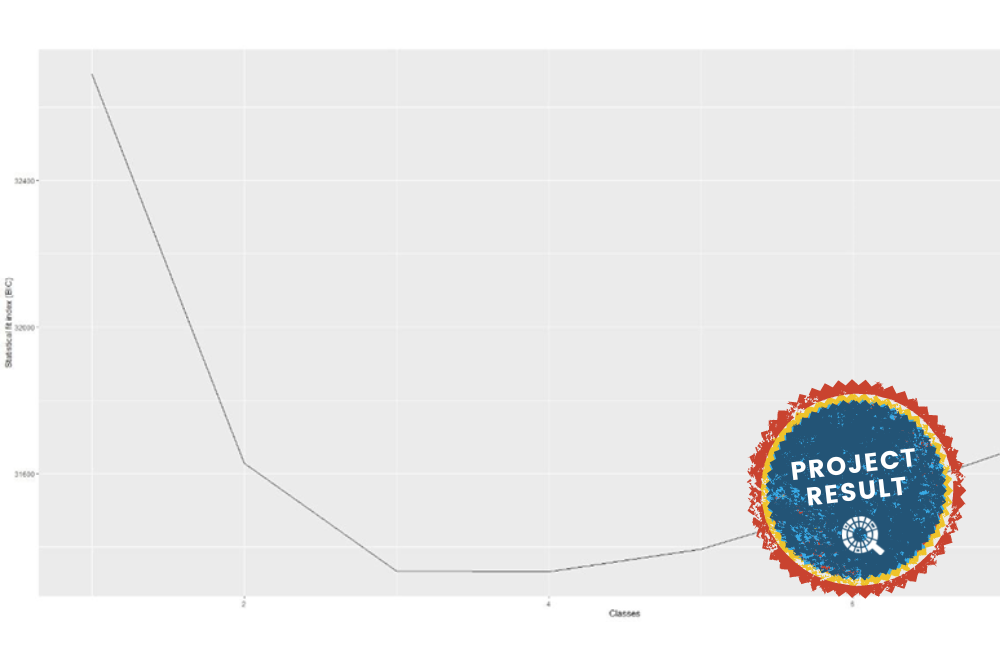Short summary
Can knowledge foster positive attitudes toward science in CS projects? Research on the public understanding of science has found that the relationship between attitudes toward science and general knowledge of scientific content is only small. We investigated whether this relationship and its direction is stronger in CS projects because these projects address specific knowledge such as wildlife ecology. Our findings indicated that citizens’ knowledge about wildlife improved their attitudes toward science later on.
Applied method
In October/November 2018, April/May 2019, and October/November 2019, 303 citizens of Berlin (Germany) participated in a CS project on urban wildlife ecology. At the start (T1) and at the end (T2) of the CS project, we assessed two identical questionnaires. Within these questionnaires, we asked citizens about their topic-specific knowledge on urban wildlife ecology and their attitudes towards science across five attitudinal domains (i.e., behavioural beliefs [BB], control beliefs [CB], normative beliefs [NB], attitudes toward different facets of science [AS], and intentions to engage with science [IE]), which were derived from the theory of planned behaviour. We used cross-lagged panel analyses and tested the influence of the variables on each other while controlling for their autocorrelations (see Figure 1).
Figure 1: Citizens’ knowledge about urban wildlife ecology at the start of the CS project (T1) positively influenced their attitudes toward science at the end of the project (T2).
Results
In an exploratory analysis with a subsample of 110 citizens, we tested for effects of citizens’ ability to reason scientifically and their beliefs about the nature of scientific knowledge (i.e. their epistemological beliefs) on the five attitudinal domains separately. One domain that was particularly interesting was the behavioural beliefs domain, which refers to citizens’ perception of the usefulness of science for their everyday life. We found that citizens’ scientific reasoning abilities promoted stronger behavioural beliefs, which means that if citizens were able to reason scientifically they also perceived science to be useful. Epistemological beliefs also slightly influenced citizens’ behavioural beliefs, which highlighted that citizens perceived science as less useful if they believed that scientific knowledge is ambiguous and changing.
Conclusions
Our results indicated that the higher citizens’ knowledge of urban wildlife ecology was at the start of the project, the more positive were their attitudes toward science across the five attitudinal domains at the end of the project (see black line in Figure 1). We did not find the opposite relationship, that is, more positive attitudes toward science at the start of the project were not related to citizens’ knowledge at the end of the project (see grey, dashed line in Figure 1). Therefore, we found an effect of knowledge on attitudes and concluded that higher knowledge about urban wildlife ecology influenced and improved attitudes toward science.
Figure 2: Conclusions.
First, our results illustrate that, in CS projects, the development of attitudes toward science profits from topic-specific knowledge (for example about urban wildlife ecology). The change in attitudes is an effect of the initial knowledge and we assume that this effect across the two-month time lag in between is due to citizens using their knowledge when participating in the CS project. That is, we believe that this effect occurred because CS projects relate citizens’ knowledge to citizens’ local contexts, which is why it can also be referred to as citizens’ local knowledge. Thereby, citizens may better use this local knowledge in the course of the CS project and learn about science and evaluate science more positively. Yet, we do not have any data that provide any insights about whether this effect is due to citizens’ CS participation and point towards future research to investigate this effect.
Second, we conceptualised attitudes toward science with five attitudinal domains based on the theory of planned behaviour. Our findings showed that such a theory-based conceptualisation of attitudes toward science facilitates an exploration of the knowledge–attitude relationship as we found clear effects.
Third, the explorative analysis indicated that citizens’ scientific reasoning abilities were also a relevant prerequisite of attitude development, at least for the behavioural beliefs domain. This means that abilities, such as to reason scientifically, can also be relevant for the development of science attitudes in addition to topic-specific knowledge and should thus be considered.
Finally, citizens’ attitudes toward science were not sufficient prerequisites for enhancing their knowledge. Other factors, such as enjoyment of the activity and previous skills, might be similarly relevant prerequisites for the acquisition of topic-specific knowledge. Therefore, we need to know more about the prerequisites of citizens’ individual learning outcomes in CS projects.
Limitation
We cannot provide any behavioural data on citizens actual behaviour. Therefore, we do not know whether citizens used and applied their knowledge on wildlife ecology in our CS project and whether this influenced the way they evaluated science. Further research with more behavioural data is needed here.
As in many other CS projects, most of the citizens in our sample were highly educated. This means that our findings might not be generalizable to samples with more diverse educational backgrounds. Future studies in the CS context should investigate whether the influence of topic-specific knowledge on attitudes toward science also holds true for more diverse samples.
References
Bruckermann, T., Greving, H., Schumann, A., Stillfried, M., Börner, K., Kimmig, S. E., Hagen, R., Brandt, M., & Harms, U. (2021). To know about science is to love it? Unraveling cause–effect relationships between knowledge and attitudes toward science in citizen science on urban wildlife ecology. Journal of Research in Science Teaching, 58(8), 1179–1202. https://doi.org/10.1002/tea.21697
Photo by Jeremy Bishop on Pexels















